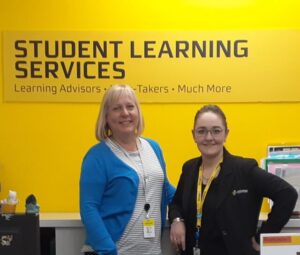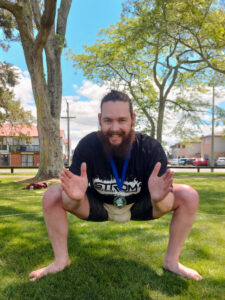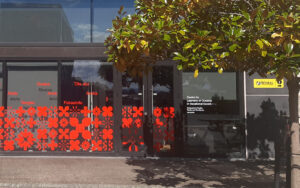Fighters like you won’t believe
Left for dead, Tim Gray won’t lie down…

I was left for dead, on the side of a road in Apia, following an assault, in my ethnic homeland of Samoa.
I was comatose for a month before waking up in Auckland hospital after an air evacuation. My head was vibrating, bombarded with all sorts of imagery. I was completely stunned.
I sustained my Traumatic Brain Injury (TBI) on November 11, 1993 – 27 long years ago.
It’s October 2020 now and I’m studying at WINTEC.
I have a fire of determination that won’t be snuffed out.
I’m obviously an older student but, again, I refuse to be snuffed out.
I have this in common with other WINTEC students who also carry disabilities.
My stated perseverance is absolutely no different from the hundreds of WINTEC students who live, study and work with a multitude of differing disabilities.
Don’t underestimate these students. They have more to prove and literally nothing to lose.
WINTEC disability advisor Annemie (pronounced Ah-na-me) van Tonder exclaims “Oh, they [students living with disabilities] are fighters like you won’t believe”.
And disability co-ordinator, Carina Fraser automatically chimes in: “There’s more to prove in their case. There’s more than one that I know of who have been told they can never do something such as tertiary study. They are here to prove some naysayers wrong.”
We all collectively burst out laughing when Annemie, a former WINTEC student herself, and a person with Attention Deficit Disorder (ADD), recalled a close family member telling her soon after her graduation that she wouldn’t last in a job for six months.
Annemie, an Occupational Therapy 2013 graduate, has actually never been short of work since, with an ACC stint lasting four years and this WINTEC disability advisor role quickly moving into its second year.
Not bad for a person who’s had to manage her ADD a lot of the time without support. ADD-afflicted people have difficulty with concentration. I have problems with that too, including focus and other things.

Declaring whether one has a disability before embarking on study may be a much of a muchness.
Notes Carina: “A lot of people with a disability are still very independent with their studies. But it is also true a lot of students don’t know we exist. Students might not see themselves as having a disability or a health problem they just think that their disability is who they are.”
Annemie and I follow similar patterns. And, like many students with differing levels of disabilities, we both chose not to declare our disabilities.
Annemie falls back on her South African roots as she looks to explain. “I was a little bit like, or I would explain myself as, an ostrich with my head in the sand.”
In my case, declaring to WINTEC staff that I carried a TBI was the last thing on my mind. However, I still managed to gain entry into the NZ Diploma of Journalism course, based on my previous experience as a reporter for the Samoa Observer (also in other papers like the Hamilton Press) and a 2003 English Literature degree at Auckland University.
All I wanted was to be able to take a refresher course from my very first, 1987 Journalism course completed at Manukau Institute of Technology, in Auckland. WINTEC seemed to serve this purpose. But then COVID 19 came along together with Studylink approval delay. A Graduate (one-year) Diploma in Communications course was on offer in July this year and without thinking I grabbed the opportunity, even though I’d earlier decided against it in favour of the complete 12-month NZ Diploma of Journalism.
Writing has always been a passion. I have a brain injury but I plan to retire knowing that I’ve completed my run as a print journalist.
Actually. that is all I have always really wanted.
Note: My journalism tutor Charles Riddle, recently gave me the biggest self-empowering tool I’ve used yet. He suggested that I tell people whom I interview that I have a brain injury. Charles continued, it is who I am now. Before I begin any interviews now, I’ll make a light declaration that I have a TBI, which affects my concentration, focus, and aspects of speech. So any quirks or idiosyncrasies, I have, TBI related or not, now comes straight from the horse’s mouth. Furthermore, it now spills out from any print journalistic work into real life.




